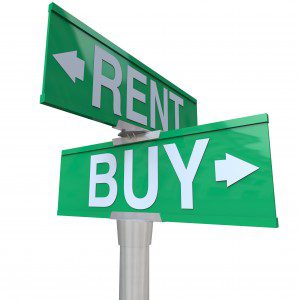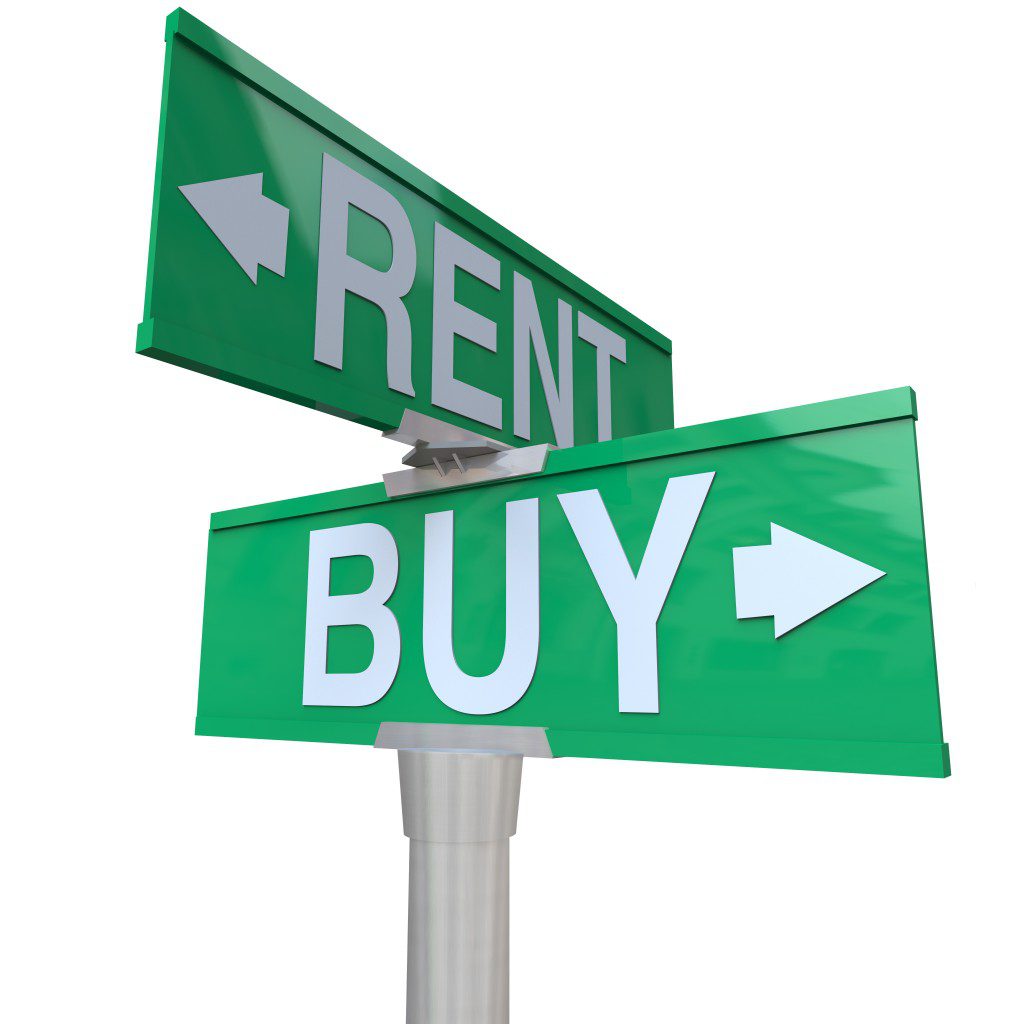 For most people, buying a home is one of the most important financial decisions they will ever make. It’s also one of the largest financial obligations, as well. And unlike many other financial obligations, once the “sale is final,” there is no return policy. At least, not for years.
For most people, buying a home is one of the most important financial decisions they will ever make. It’s also one of the largest financial obligations, as well. And unlike many other financial obligations, once the “sale is final,” there is no return policy. At least, not for years.
So, is it smarter to rent or buy?
Sometimes the answer is fairly easy: if you crunch some basic numbers and can afford it, and other economic conditions are good – buy it. However, remember that the “basic” numbers include more than monthly mortgage payments. There is a substantial down-payment, annual real estate taxes, ongoing maintenance and repair costs, insurance (property and liability) and other miscellaneous costs of home ownership.
Since the required down-payment is often a stumbling block, for both first-time and veteran home-buyers, this would be the perfect time to utilize the cash value from your whole life insurance policy to satisfy the down-payment, or a substantial portion of it.
In general, buying offers several very favorable benefits. First, your monthly payment will be constant, depending upon the type of mortgage you obtain. No one will be, willy-nilly, raising the rent.
But the two greatest benefits of buying are: the mortgage interest rate tax deduction you will receive every year and the equity (profit) you might be able to build in your home, over time. These are often compared to the common idea of “throwing your money away,” by renting.
The benefits of renting are being able to move at the end of your lease, if you choose; no maintenance and repair costs; no down-payment requirement and there is no daunting paperwork to navigate and no stress quotient at “the closing.” Easy in, easy out.
Renting a property means signing a lease. Purchasing a property includes qualifying for a mortgage, coming up with the down-payment, surviving searches, appraisals, inspections, surveys and numerous reports on structure, systems and appliances.
But there are other factors, aside from affordability, that will help determine, whether it’s wiser for you to buy or to rent, at any given time. Here are a few:
Location. Is location a major factor to you? Some people want to remain close to family; some need to stay close to their employment while others may be changing jobs, within a few years. Still others may have school-age children and desire an area with top education ratings. And, of course, what are rental prices compared to purchase prices in any specific location?
Mobility. Similar to location, the need to pick up and go, quickly, is another consideration. Today, it’s wise to be realistic about your state of employment. Is your industry “iffy”? Is your specific job “iffy”? Do you have a skill that might receive greater opportunities in other geographical areas, after a few years of experience? Etc.
Building Equity. The longer you intend to stay in your new home, the more likely it is that you should buy. You need time to recoup the “closing-cost” and to allow the purchase price to start ticking upward (appreciation). If one of your major purposes for buying a home is for an investment (building equity) but you don’t intend to stay, at least, 5 years – it might not make financial sense to purchase a home until you are committed to staying.
The above factors, that might influence your decision whether to remain a renter or become a home-owner, are personal reasons, specific to you. Regardless of what is economically feasible for you, using your Whole Life Policy’s cash value provides you with the option to choose.







